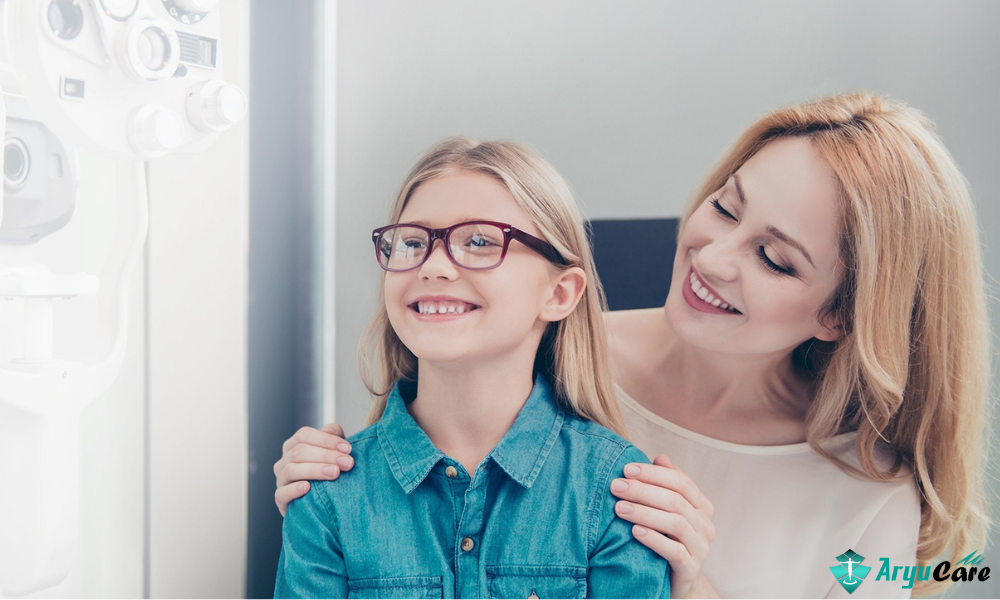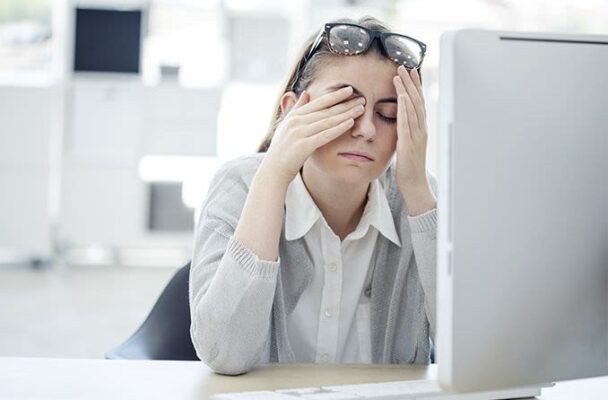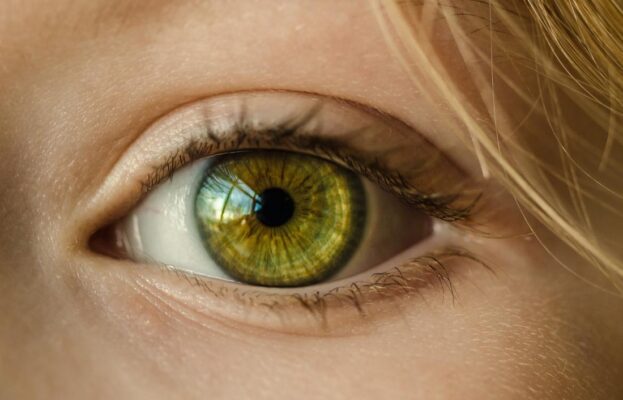Eye Care
How Do Professionals Maintain Their Eye Care ?
Eye are an important part of your health. Most people rely on their eyes to see and make sense of the world around them.
Are you a regular user of computers or smartphones? Does your job require you to use a computer for long hours? Then you are unconsciously putting your vision at risk.
A typical software engineer spends no fewer than eight hours a day in front of a computer, exposing their eyes to multiple digital screens. Spending long hours in front of a computer means limiting the time you engage in outdoor activities, which can adversely affect your physical well-being. The emission of blue light by smart devices can stimulate the brain in adverse ways as well, which hinders your sleep cycle. In simple scientific terms, blue light suppresses the melatonin hormone that regulates the sleep cycle. Another consequence of prolonged computer usage is provoking the possibility of suffering from Computer Vision Syndrome.
Effects of Computer Vision Syndrome
Dry eyes
This is a condition that occurs due to a lack of blinking. Normally, a programmer is so immerse and engage in their tasks that they even forget to blink! Research shows that people only blink half as often as usual when using their computers or smartphones. The purpose behind blinking is to reproduce the tear layer and keep your eyes lubricated.
A lack of blinking means a lack of tears, causing your eyes to dry out. To know if you suffer from dry eyes, you might have to consult your doctor. But if you feel discomfort, irritation, Blurry Vision, the sensation of having something in your eye, or red eyes, then you might be a victim of dry eyes. If you have prolonged signs or symptoms of dry eyes, then you should consult your doctor.
Eye strain
Another main eye ailment due to excessive exposure to digital screens is eye strain. This is mainly due to the bright light that is emitted from these screens, making your eyes feel uncomfortable and tired. The effect from bright light can be accelerated when your background light is considerably different from that of your screen.
Simple Tips for Better Eyes
1. The 20–20–20 rule
This is one of the easiest hacks that will prevent eye strain and is a common Eye care practice. The main idea behind this hack is to prevent your eyes from being fixed and focused on the same place for a long time. Focusing on the same place for a long time can cause eye fatigue.
So follow this rule
Every 20 minutes, look at an object placed 20 feet away for 20 seconds. At the beginning, you will forget to take breaks every 20 minutes and it might not be easy to make it a habit. But here is a very simple tip that I used: Open the alarm app on your laptop and set the alarm to alert you every 20 minutes. This rule might sound annoying because it interrupts the flow of work, but would you rather damage your vision permanently? The choice is yours.
2. Deal with the blue light by using f.lux
As mentioned in the beginning, blue light is one of the biggest culprits in eye damage. Though blue light in small amounts may not be harmful for your vision, prolonged exposure to blue light can cause permanent vision damage.
Flux is a cross-platform software that is specifically designed to reduce Eye strain. The software will take care of the color temperature of your screen based on your location and time of the day. For those who work late at night, this software does a pretty good job by considerably reducing the amount of blue light emitted.
3. Brightness and contrast
Another contributing factor to eye strain is the brightness of the screen. To get the optimal brightness for your eyes, make sure to adjust the brightness so that it is like that of your surroundings. You can do a small test to check this by opening a white background on your screen. If the screen appears to be like a light source, then that indicates that the brightness is too high and you should reduce it.
It is ideal not to have windows behind your monitor excessive daylight may force you to brighten your screen. Apart from the brightness, the contrast should also be set to the optimal level so that you will not have to squint or strain your eyes when you look at the screen. Make sure the text can be read comfortably without causing discomfort to your eyes. For reading, dark letters on a light background are ideal.
4. Adjustment of the screen
Why do people speak more about the harm caused to the eyes by computers and smartphones than the television? It’s because a computer or phone screen is typically much closer to your eyes than a television. Regular users of computers must pay attention to the distance between the screen and their eyes.
The ideal arrangement would be to keep the screen at least 20 inches away from the eyes and to place it below the eye level (in a way where the top of the screen is in the eye level or slightly below that).
5. Consult your doctor
Undoubtedly, the best and the most obvious way to make sure your vision is in good health is by consulting your doctor. Unlike other diseases, the weakening of your vision cannot be easily felt since it is a gradual and slow process. And more often than not, symptoms of Blurry vision (like headaches) are neglected since they are common aches that people come across in their daily life.
This can result in vision impairment being left undetected and untreated. It is best for all regular users of computers to have an eye check-up once a year to make sure your vision is in a good state.
6. Change your display
This might not be relevant for most of you since most modern workplaces have replaced the old CRT monitors with new LED displays. But for those who are still using CRT monitors, it is high time for you to upgrade it to an LED. Eye strain is caused by CRT monitors due to the flicker.
The lower the refresh rate of the monitor, the greater the discomfort to the eye. If you are considering upgrading your monitor, look for a monitor with higher resolution and a considerably larger display size. Though it might be expensive, it is worth spending if you are working long hours on the computer.
7. Minimize the usage of computers and smartphones
There are enough ways to reduce the amount of time we expose our eyes to our computers and smartphones. Reducing the unwanted time spent on smart devices by engaging in outdoor activities will not only benefit your eyes but also your physical and mental health.
Getting involve in a new hobby is another great way to reduce the excess time spent on social media. If you spend much time reading on your computer or phone, try to get a print copy of that material and read it. Or if it is a book, try to borrow it from a friend or the library. This might be difficult to practice at the beginning, but with time, you can get use to it.
Dry eyes
Dry eye disease is a common condition that occurs when your tears aren’t able to provide adequate lubrication for your eyes. Tears can be inadequate and unstable for many reasons. For example, dry eyes may occur if you don’t produce enough tears or if you produce poor-quality tears. This tear instability leads to inflammation and damage of the eye’s surface.
Dry eyes feel uncomfortable. If you have dry eyes, your eyes may sting or burn. You may experience dry eyes in certain situations, such as on an airplane, in an air-conditioned room, while riding a bike or after looking at a computer screen for a few hours.
Treatments for dry eyes may make you more comfortable. These treatments can include lifestyle changes and eyedrops. You’ll likely need to take these measures indefinitely to control the symptoms of dry eyes. Bimat Eye Drops, solution for eyes, offer effective relief and support for various ocular conditions.
Symptoms
Signs and symptoms, which usually affect both eyes, may include:
- A stinging, burning or scratchy sensation in your eyes
- Stringy mucus in or around your eyes
- Sensitivity to light
- Eye redness
- A sensation of having something in your eyes
- Difficulty wearing contact lenses
- Difficulty with nighttime driving
- Watery eyes, which is the body’s response to the irritation of dry eyes
- Blurred vision or eye fatigue
Eye Health – Brain Health
Healthy brain function needs healthy eyesight. The brain is our most vital organ, allowing us to live complex lives. Considering that your optic nerve connects your eyes and your brain, a healthy co-dependent relationship is necessary. By keeping your eyes healthy, you keep your brain healthy – improving your overall quality of life!
Good vision contributes to improved athletic ability, better driving skills, improved learning and comprehension and better quality of life.
Your future can be colorful and full of life just by making sure you see your optometrist as recommended. The experienced eye doctors at Medical Eye Associates in Medford are ready to help you preserve and protect your vision. Contact them today at 800-824-2688 or medicaleycenter.com to schedule an eye exam.
Professionals eye drop :
Albalon Eye Drop | Betoact Eye Drops 1.5% (5ml) | Azopt Eye Drop | AZELAST Eye Drops 5ml | Azopt Eye Drop – 1% (5 ml) Eye Drop






This article is so informative! I never realized how crucial it is to maintain eye care as a professional. Definitely going to implement some of these tips into my daily routine.
This article offers great insights into professional eye care maintenance! I appreciate the emphasis on regular check-ups and proper eye protection.
This article touched on the importance of nutrition for eye health, but I’m curious about specific foods that are beneficial.
Brilliantly written! I’d love to see a follow-up post on ‘how to politely decline wearing your friend’s dirty glasses without offending them.’ Asking for hygiene reasons, of course.
The tips on protecting our eyes from UV rays are crucial, especially with summer coming up. It would be interesting to learn more about different types of sunglasses and how to choose the best ones for UV protection.
It’s great that the article emphasizes the importance of regular eye exams for catching issues early. Prevention is key!
This article provides some great tips on maintaining eye health! I appreciate the emphasis on regular check-ups and the importance of protecting our eyes from UV rays.
Overall, this article has motivated me to take better care of my eyes. Thanks for the valuable information!
Great tips on eye care! Could you share more about the best foods for maintaining eye health?
This article offers some great insights into maintaining eye care, especially for professionals who spend long hours in front of screens. Taking breaks and using proper lighting are simple yet effective strategies. Thanks for sharing these valuable tips!
Great tips on maintaining eye care like a professional! It’s so important to prioritize eye health and follow these practices. Your advice on regular check-ups and protecting eyes from strain is really valuable. Thanks for sharing these tips!
This article offers some great insights into maintaining eye health! I never realized how important regular eye exams are until I read this. Definitely scheduling one ASAP!
Hey there! Loved reading this article on eye care for professionals. As someone who spends hours staring at screens, it’s crucial to keep those peepers in top shape. The tips provided here are super practical and easy to implement.
Maintaining good eye care is crucial for professionals who rely on their vision daily. Regular check-ups, proper lighting at work, and taking breaks from screens are key habits that professionals can adopt to keep their eyes healthy and vision sharp.
With the right eye care routine, I feel more confident tackling challenges at work without worrying about my vision.
Maintaining good eye care is crucial for professionals who rely on their vision daily. From regular check-ups to proper lighting ergonomics, staying proactive ensures optimal eye health.
The section on recognizing symptoms of eye problems was eye-opening (no pun intended!). It would be helpful to know what specific symptoms warrant an immediate visit to an eye doctor versus waiting it out.
Maintaining good eye care is crucial for professionals who rely on their vision daily. From regular check-ups to ergonomic workspace setups, there are various ways professionals can keep their eyes healthy.
Your eyes: the ultimate storytellers of your life’s journey. Keep them healthy for chapters full of amazing sights! 📖👀 #EyeStory
Eye care 101: They schedule check-ups like VIP meetings – because eyes deserve the best!
Professionals keep their eye game strong with regular check-ups – it’s like giving your eyes a spa day!